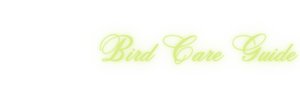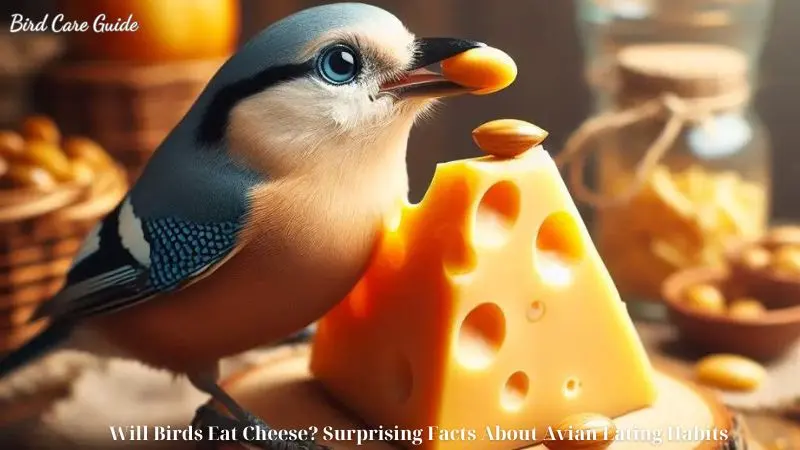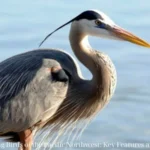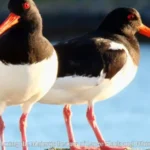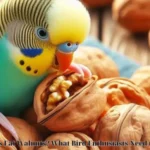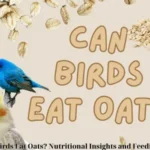Birds are captivating creatures that display an incredible variety of feeding behaviors and dietary preferences. Bird enthusiasts and backyard bird feeders alike often wonder about the suitability of various human foods for their avian visitors. A common question that arises is: “Will birds eat cheese?”
“Bird Care Guide” takes a deep dive into this question and uncovers surprising facts about the eating habits of birds, shedding light on whether cheese is a suitable food for birds and what Consideration should be given when providing cheese.
Understanding Avian Diet Diversity
Birds exhibit a remarkable diversity in their diets, which is closely tied to their species, habitat, and ecological niche. Broadly, bird diets can be categorized into several groups:
1. Insectivores:
These birds, such as warblers, flycatchers, and swallows, primarily consume insects. They play a crucial role in controlling insect populations and often have specialized beaks and hunting techniques.
2. Granivores:
Birds like sparrows, finches, and pigeons fall into this category. They feed mainly on seeds and grains, using their strong beaks to crack open tough seed shells.
3. Frugivores:
Species such as parrots, toucans, and some pigeons are frugivores, feeding primarily on fruits. These birds help in seed dispersal, contributing to the growth of many plant species.
4. Carnivores:
Raptors like hawks, eagles, and owls prey on other animals, including small mammals, reptiles, and other birds. They have keen eyesight and powerful talons for hunting.
5. Omnivores:
Many bird species, including crows, gulls, and some woodpeckers, have an omnivorous diet, consuming a mix of insects, fruits, seeds, and small animals.
6. Nectarivores:
Birds such as hummingbirds feed primarily on nectar from flowers. They have specialized tongues and beaks to access the sweet liquid efficiently.
Will Birds Eat Cheese?
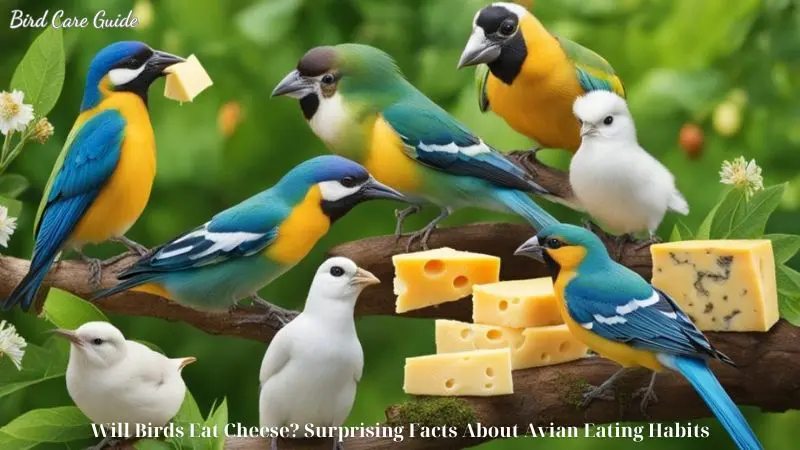
Given the wide variety of avian diets, it’s natural to wonder if birds will eat cheese. The short answer is yes, some birds will eat cheese if it is available, but it is not a natural part of their diet. Cheese is a dairy product, and most birds do not encounter dairy in their natural habitats. However, birds are opportunistic feeders, and some species may consume cheese when it is offered.
Attracting Birds with Cheese
While cheese is not a typical food for birds, it can be used as an occasional treat to attract certain species to your backyard. Birds that might eat cheese include:
- Crows and Ravens: These highly intelligent birds are known for their adaptability and will eat a wide range of foods, including cheese.
- Magpies and Jays: Members of the corvid family, these birds are also opportunistic feeders that may consume cheese.
- Woodpeckers: Some woodpecker species might be attracted to cheese, especially if it is mixed with other bird-friendly foods like nuts and seeds.
- Robins and Thrushes: While these birds primarily eat insects and fruits, they might sample cheese if presented.
How to Offer Cheese to Birds
If you decide to offer cheese to birds, it’s important to do so in moderation and with consideration for their health. Here are some tips:
- Choose the Right Cheese: Offer mild, low-fat cheeses like mozzarella or cottage cheese. Avoid strongly flavored or high-fat cheeses.
- Serve in Small Quantities: Cheese should only be an occasional treat. Too much cheese can be difficult for birds to digest and may lead to health issues.
- Mix with Other Foods: To make cheese more appealing and nutritious, mix small pieces of cheese with other bird-friendly foods like nuts, seeds, or dried fruits.
- Keep It Fresh: Remove any uneaten cheese after a few hours to prevent spoilage and avoid attracting pests like rodents.
Potential Risks of Feeding Cheese to Birds
While some birds may eat cheese, it is important to be aware of the potential risks and drawbacks of including cheese in their diet:
Lactose Intolerance
Most birds are lactose intolerant, meaning they lack the enzyme lactase needed to digest lactose, a sugar found in milk and dairy products. Consuming lactose can cause digestive upset, including diarrhea, in birds. Although cheese contains less lactose than milk, it still may pose a risk if consumed in large quantities.
High Fat Content
Cheese is relatively high in fat, which can be problematic for birds if consumed regularly. A high-fat diet can lead to obesity, liver problems, and other health issues in birds. It is important to offer cheese sparingly and as part of a balanced diet.
Salt Content
Some cheeses are high in salt, which can be harmful to birds. High salt intake can lead to dehydration and kidney problems. When offering cheese to birds, choose low-salt options and limit the amount provided.
Attraction of Pests
Offering cheese in your backyard can attract unwanted pests, such as rodents and raccoons. These animals may pose a threat to birds and can create additional problems for homeowners. Always monitor your feeding stations and clean up any uneaten food promptly.
Healthy Alternatives to Cheese for Birds
While it may be tempting to offer cheese to birds, there are many healthier alternatives that provide better nutritional value and are more suited to their natural diets. Consider offering the following foods instead:
Fruits
Fresh fruits like apples, oranges, berries, and grapes are a great source of vitamins and nutrients for many bird species. Ensure that fruits are washed and cut into small, manageable pieces.
Nuts and Seeds
Nuts and seeds are a favorite among many bird species. Offer a variety of nuts (unsalted and shelled) and seeds, such as sunflower seeds, pumpkin seeds, and peanuts, to attract different birds to your yard.
Suet
Suet is a high-energy food made from animal fat and is particularly beneficial for birds during the winter months. It can be mixed with seeds, nuts, and dried fruits to create a nutritious and appealing food source.
Mealworms
Live or dried mealworms are an excellent protein source for insectivorous birds. They can be offered in a feeder or scattered on the ground to attract birds like bluebirds, wrens, and robins.
Homemade Bird Treats
Create your own bird-friendly treats by mixing ingredients like oats, peanut butter, seeds, and dried fruits. Form the mixture into small balls or cakes and offer them on a feeder or platform.
The Importance of a Balanced Diet for Birds
Providing a balanced diet is crucial for the health and well-being of birds. Whether you are feeding backyard birds or caring for pet birds, offering a variety of foods that meet their nutritional needs is essential. Here are some tips for ensuring a balanced diet for birds:
- Variety is Key: Offer a mix of seeds, fruits, nuts, and insects to cater to different species and their dietary requirements.
- Fresh and Clean: Ensure that all food offered to birds is fresh and clean. Remove any uneaten food to prevent spoilage and contamination.
- Natural Sources: Whenever possible, provide natural food sources that birds would encounter in their habitats. This helps to mimic their natural diet and promotes better health.
- Avoid Processed Foods: Processed foods, including many human snacks, are not suitable for birds. They often contain high levels of salt, sugar, and unhealthy fats.
- Monitor Health: Regularly observe the birds you are feeding for signs of health issues. If you notice any problems, consult with a veterinarian or an avian specialist.
Conclusion
The question “Will birds eat cheese?” reveals the complexity of avian dietary habits and the challenges of providing suitable food for wild and pet birds. While some bird species may consume cheese out of curiosity or necessity in human-altered environments, it is not a natural or recommended part of their diet. Offering birds a diverse range of natural foods ensures they receive the essential nutrients needed for their health and well-being. By understanding avian dietary preferences and promoting responsible feeding practices, we can contribute to the conservation of wild bird populations and foster a deeper appreciation for their natural behaviors.
